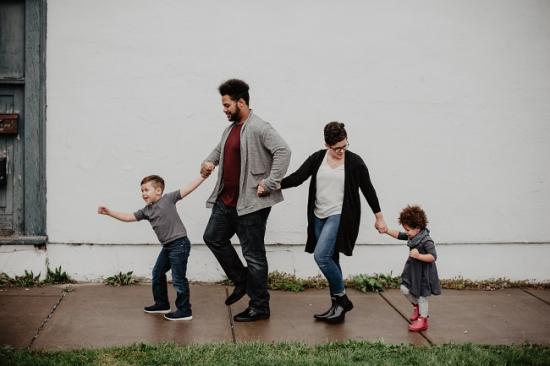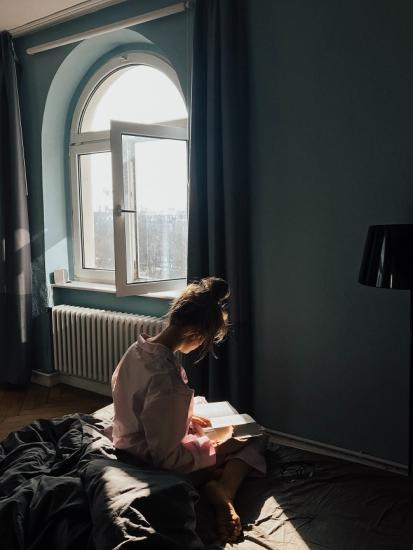
Shortly after my daughter’s school closed in March due to the coronavirus pandemic, her history teacher sent his students an email. In the email, he advised them that, as a result of the pandemic, they currently are living through a historic period in time. He was right. We are.
Within the span of six weeks, a highly contagious virus has taken over our world. It sounds like the plot of a science fiction movie. Unfortunately, it is our new reality.
Given this seminal moment in history, if there was ever a time to teach our children some life lessons, it is now. This isn’t simply a period of inconvenience. This isn’t simply an unfortunate time during which your children can’t go to school, participate in group sports or have play dates. It is a historic period during which humanity’s morals are being tested.
As parents, we now have the opportunity to use this pandemic as a teachable moment for our children. This is an opportunity to talk to our children about what it means to be a decent human being. Below are some ways to use this period in history to teach your children some very important life lessons.
Lesson 1 – You Have A Responsibility to Help Other People
Children can be self-centered. Their worlds revolve around me, myself and I. Of course, to a limited extent, children may worry about mom, dad and their siblings. But they tend not to be concerned about much else.
Teaching our children to care about other people, especially people they don’t know is important. It is a critical part of their becoming good citizens. And the first place they learn how to do that is at home.
The “shelter in place” rules are a great opportunity to teach your children about their responsibility to other people. The purpose of these rules isn’t simply to keep us from catching the virus. Their purpose is also so that we don’t spread the virus to others, whether they be family members or complete strangers.
So, explain to your children that by staying at home, they are doing their part to prevent the spread of the virus. Simply put, if they don’t get the virus, then they can’t spread it to others. They also don’t have to go to the hospital for treatment and thereby burden our already overburdened medical system.
When your child shelters in place, he or she is protecting and helping others. Many of those people may be folks your child doesn’t even know. And that makes your child a mini-hero!
Lesson 2 – Good People Sacrifice for Others
I know of a family who, in the middle of March, decided that they could not give up their spring break vacation to Florida. They lived in a state where they had been ordered to “shelter in place.” But they decided to violate this rule and go on their vacation anyway.
So, the parents and their three children got on a plane. And it was exciting. They took photos of their (not surprisingly) empty plane, and they posted their photos on social media, with the comment, “Look! We have the plane all to ourselves!” Then they went and enjoyed a beach vacation in Florida. On their vacation, they joined many other people for whom sheltering in place was just too much of a sacrifice.
My first thought when I learned about this family was this: “What are these parents teaching their children?” They were teaching their children that their vacation was more important than other people’s lives. It was an extraordinary lesson to give impressionable, young children.
Good people are willing to sacrifice for others. Our nation’s history is built upon that very concept. Our greatest heroes have been those people who put aside their own selfish needs to serve others.
So, during this pandemic, when we as families are “sheltering in place,” explain to your children that their sacrifice of staying at home is important! Of course, it may not feel very good right now. No child likes giving up things that they enjoy. But by sacrificing those things that they love – whether they be playdates, sports activities or vacations – our children are learning something important. They are learning that sacrificing for others is what high quality, decent people do.
Lesson 3 – Learn to Be Adaptable
Unsuccessful people have trouble adapting. Instead, they dig in their heels. They demand that life goes their way. And when it doesn’t, they fall apart.
Successful people know how to adapt to life’s changing circumstances. They figure out how to be successful and happy, no matter what is going on. So, if you want to teach your children to be successful, you need to teach them the very important skill of adaptability.
Clearly, the coronavirus pandemic is testing our children’s ability to adapt. It is testing whether our children can figure out how to learn, even when they aren’t in a classroom setting. The quarantine is showing whether they can find positive ways to entertain themselves, even when they don’t have extracurricular activities or play dates. This experience is telling us whether our children are good at adapting to new life circumstances.
Of course, none of us enjoys change. To a certain extent, we all resist it. But as a parent, you have to push you kids to learn how to adapt. While being quarantined, most children initially will whine, tell you that they can’t figure stuff out, and complain that they are bored. But it is important to push them to adapt to these new circumstances.
Frankly, if your children can’t do something as simple as learn how to entertain themselves during a quarantine, how are they going to manage life? Life is going to toss much tougher circumstances at them. Better that they learn now how to be flexible. Otherwise, when they are 35-years-old and have real problems, they won’t know how to manage.
The coronavirus pandemic is a period in our nation’s history when we have a unique opportunity to impart some important life lessons to our children. As parents, we should take advantage of this time to talk to our children about the bigger life issues – our responsibility to others, what it means to be a good citizen and how to be flexible. If we do so, my hope is that this next generation will be just a little bit kinder, more compassionate and more generous.
Email: meerabelle@meerabelledey.com
If you would like to receive my free e-book, “The Confidence Course,” and sign up for my weekly newsletter, go to meerabelledey.com.

